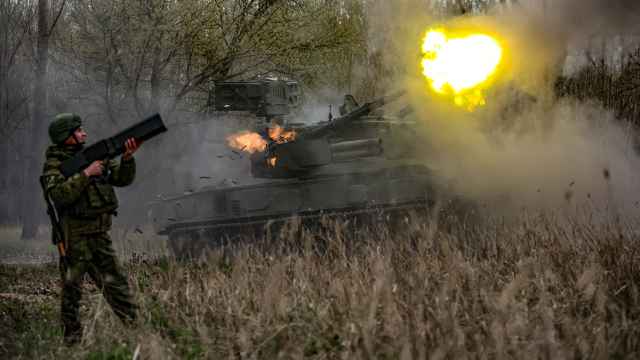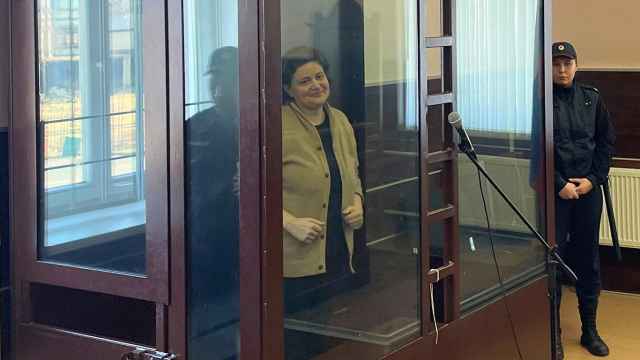After years of closing the republic to outsiders, attracting foreign investment is now a priority for the Bashkortostan government, forced for the first time to grapple with a dwindling budget.
In the last year and a half the republic’s leaders, based in the capital Ufa, about 1,500 kilometers southeast of Moscow, have taken serious steps to improve the business environment and increase the amount of foreign business in the region.
In 2010, the republic attracted more than $61 million in foreign direct investment, according to the Finance Ministry. The total amount of investment last year, foreign and domestic, was $4.7 billion, according to the Bashkortostan government web site. The biggest foreign investors include IKEA and Auchan, while RusHydro, Gazprom and Rusnano head the list of domestic companies doing business there.
A development corporation was created in the spring of 2010 to assist investors in rolling out their projects. The corporation is made up of 10 to 12 businessmen who will prepare documents for entrepreneurs and help them with administrative barriers.
In 2012, a new regional law will automatically exempt investors from paying land and profit taxes, if their project is certified by the government.
Bashkortostan’s biggest foreign investor to date, IKEA, opened in August. The company had tried to expand into the region for several years, but only succeeded after the new republic president Rustem Khamitov, who was appointed in 2009, got personally involved, said Ikea Russia and CIS real estate manager Joakim Hogsander.
After Khamitov started paying attention, local authorities accompanied Hogsander and other IKEA representatives to meetings with agencies such as federal industrial watchdog Rostekhnadzor and the Emergency Situations Ministry, and helped get permissions and explain official procedures, Hogsander said.
“The new administration has been very proactive, going in the same direction as us,” Hogsander said.
The efforts to attract investment are fueled by the realization that it is the only way to keep Bashkortostan’s budget afloat, said the republic’s president of Chamber of Commerce and Industry, Yury Pustovgarov.
On Forbes Russia’s list of the best regions to do business in, Bashkortostan now holds 13th place, while Tatarstan is in the No. 1 position, though just a few years ago, Bashkortostan was ahead of its neighbor.
The republic’s finance officials see the root of their problems as a mirror of what is happening at the national level: insufficient innovative business strategies due to overreliance on natural resources — which the region does not lack.
In the early 2000s, the government did not think about improving the investment climate, since the republic was one of the top producers of oil in Russia, as well as metals and other ores.
Regional authorities depended on petrodollars to fill their coffers for more than a decade, but changes to federal tax laws in the mid-2000s reduced the amount of money flowing into the budget. Government spending habits did not change, and soon the funds began to dry up. In addition, former republic president Murtaza Rakhimov kept Bashkortostan closed to outside investors until he resigned in 2009.
“We didn’t use our time to develop the business infrastructure,” Pustovgarov said on a recent press tour to the republic. “Now to attract the investor we must pay.”
The average factory in Bashkortostan pays several billion rubles to install utilities, such as gas and water, while industrial zones in Tatarstan provide investors with connections to those services.
There are several industrial zones currently under construction in the republic that will provide well-prepared facilities for businesses. Regional authorities are willing to negotiate other perks for investors as well, said Aidar Gareyev, the head of the Bashkortostan development corporation.
Thanks to the successful oil extraction and refining industries, petrochemical activities, like plastic manufacturing and other chemical production, are growing. The republic is the national leader for oil refining.
Mining of ores and extraction of oil, as well as agriculture, are good investments, Gareyev said.
The tourism sector is only in its infancy now, although there are several ski resorts located in the nearby Ural Mountains, and the republic has hot springs, old churches and nature reserves. But the sector has great potential for development, officials said.
They are confident that they can compete in the long term. “Get a foothold now in our market, since there will be fewer opportunities and more competition five years from now,” Deputy Prime Minister Pustovgarov said in an effort to encourage investors.
“It’s cold here — you must build [your factory] with thick walls and heat the building. But we will also buy your products,” he said.
A Message from The Moscow Times:
Dear readers,
We are facing unprecedented challenges. Russia's Prosecutor General's Office has designated The Moscow Times as an "undesirable" organization, criminalizing our work and putting our staff at risk of prosecution. This follows our earlier unjust labeling as a "foreign agent."
These actions are direct attempts to silence independent journalism in Russia. The authorities claim our work "discredits the decisions of the Russian leadership." We see things differently: we strive to provide accurate, unbiased reporting on Russia.
We, the journalists of The Moscow Times, refuse to be silenced. But to continue our work, we need your help.
Your support, no matter how small, makes a world of difference. If you can, please support us monthly starting from just $2. It's quick to set up, and every contribution makes a significant impact.
By supporting The Moscow Times, you're defending open, independent journalism in the face of repression. Thank you for standing with us.
Remind me later.





